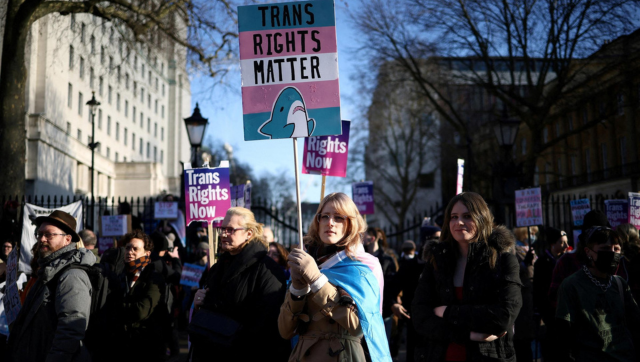Edinburgh: The hotly contested gender reform law from Edinburgh will be the subject of a legal dispute between the Scottish and British governments. According to reports, the Scottish government has decided to file a petition for a judicial review in response to Westminster’s veto of the bill and the announcement was made Wednesday by the Social Justice Secretary Shirley-Anne Somerville. She reportedly said that the Gender Recognition Reform Bill was approved by the Scottish Parliament with the support of parliamentarians from all parties. She said: “The use of section 35 is an unprecedented challenge to the Scottish Parliament’s ability to legislate on clearly devolved matters and it risks setting a dangerous constitutional precedent”. “In seeking to uphold the democratic will of the parliament and defend devolution, Scottish ministers will lodge a petition for a judicial review of the Secretary of State for Scotland’s decision,” she added. In response to the announcement, the Secretary of State for Scotland, Alister Jack said: “The UK government will robustly defend the decision to prevent the Scottish government’s Gender Recognition Reform Bill from becoming law. “I made the order under section 35 of the Scotland Act 1998 after thorough and careful consideration of all the relevant advice and the policy implications. “I was very clear in the accompanying statement of reasons how the bill would have an adverse effect on reserved matters, including on the operation of the law as it applies to Great Britain-wide equalities protections. “The use of the power is entirely within the devolution settlement as set out from its inception, with cross-party support.” MSPs approved the Gender Recognition Reform (Scotland) Bill just before the holiday season. Jack, the Scottish Secretary, asserted that the bill conflicts with UK-wide equality rules and that the different gender recognition systems in Scotland and elsewhere will lead to “significant complications.” Somerville clarified, “The UK government gave no advance warning of their use of the power, and neither did they ask for any amendments to the bill throughout its nine-month passage through parliament. “Our offers to work with the UK government on potential changes to the bill have been refused outright by the secretary of state, so legal challenge is our only reasonable means of resolving this situation. “It is important to have clarity on the interpretation and scope of the section 35 power and its impact on devolution. These matters should be legally tested in the courts,” she said. The length of time that adult candidates had to have lived in their acquired gender would be shortened to three months, and no diagnosis or medical records would be required. What is Gender Reform Bill? The purpose of the measure is to make it easier for transgender people to legally alter their gender. Its provides a gender recognition certificate to applicants between the ages of 16 and 17 after they complete living six months as their adopted gender. Critics claim that it jeopardises single-sex areas and women’s rights. Conflict within SNP The bill has reportedly caused conflict within the SNP. Shortly before MSPs started discussing the first stage in October of last year, Ash Regan resigned as minister of community safety. Seven SNP MSPs voted against it, defying the whip in the process. First Minister Humza Yousaf was the only candidate in the SNP leadership race to advocate action if legal counsel recommended it. Ash Regan predicted that any legal challenge would be unsuccessful, while Kate Forbes promised to change the law so that it could not be overturned again. Read all the Latest News , Trending News , Cricket News , Bollywood News , India News and Entertainment News here. Follow us on Facebook , Twitter and Instagram .
UK blocks Scottish law on transgenders, matter lands in court
Abhishek Awasthi
• April 12, 2023, 19:03:49 IST
The purpose of the bill is to make it easier for transgender people to legally alter their gender. Its provides a gender recognition certificate to applicants between the ages of 16 and 17 after they complete living six months as their adopted gender
Advertisement
)
End of Article